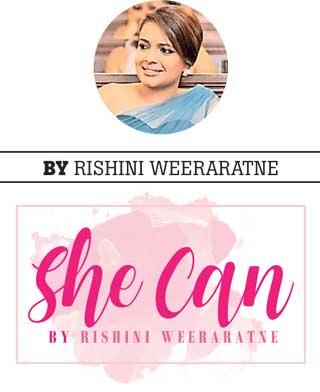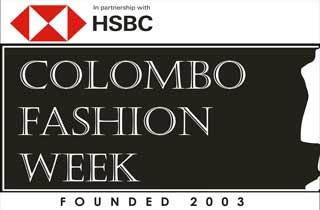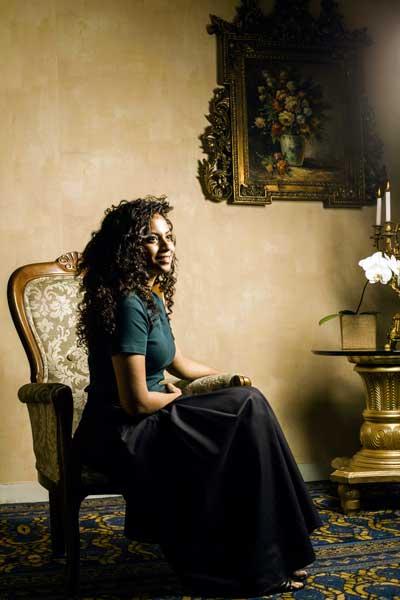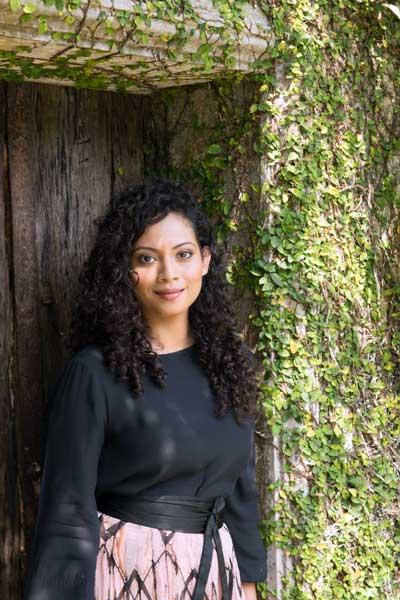Reply To:
Name - Reply Comment
DIRECTOR AND CEO, COLOMBO FASHION WEEK
 She is the Chief Executive Officer and Director of CFW Holdings. She is an alumnus of Staffordshire University (UK), and is armed with a Bachelor’s degree in Business and Information Technology. She started her corporate career as a Software Programmer at ATP Asia (PVT) LTD; a leading provider of data processing services headquartered in Canada with operations globally. She was the Director and a Business Consultant at Aspire Consultancy (PVT) LTD; a boutique consultancy firm primarily assisting international companies entering Sri Lanka. She started her career at CFW Holdings as the CEO of Colombo Swim Week in 2015. She is a Co-Founder of sustainable fashion label, Pigeon Island. She was appointed as the CEO of Colombo Fashion Week in 2016 and as a Director in 2018. She is an Executive Member of the Responsible Fashion Movement.
She is the Chief Executive Officer and Director of CFW Holdings. She is an alumnus of Staffordshire University (UK), and is armed with a Bachelor’s degree in Business and Information Technology. She started her corporate career as a Software Programmer at ATP Asia (PVT) LTD; a leading provider of data processing services headquartered in Canada with operations globally. She was the Director and a Business Consultant at Aspire Consultancy (PVT) LTD; a boutique consultancy firm primarily assisting international companies entering Sri Lanka. She started her career at CFW Holdings as the CEO of Colombo Swim Week in 2015. She is a Co-Founder of sustainable fashion label, Pigeon Island. She was appointed as the CEO of Colombo Fashion Week in 2016 and as a Director in 2018. She is an Executive Member of the Responsible Fashion Movement.
She Can and she is creative, innovative and fiercely fashionable; Fazeena Rajabdeen.

Share with us details of your entrepreneurial journey; from classroom to boardroom?
For me it has been a journey of exploring spaces beyond the boundaries of a defined ‘room.’ At university, I studied IT and after starting my career in the tech industry, I ventured into Business Consultancy. After my kids came along, I took some time out from my career and during this time there was a realization that if and when I got back to work, every moment away from my young family had to be meaningful. Hence, I left my career in IT and took a leap of faith and joined the fashion industry, and I haven’t looked back since. Fashion was an interest from the time I was a teenager and in the absence of social media channels it meant pouring over every fancy fashion magazine I could get my hands on. For me, fashion is ultimately about people. How it impacts an individual’s sense of self and identity, how it evokes emotions and the space for creativity and vision beyond the confines of what we know and how we think. There have been moments of nervousness and even fear, but I’m particular about getting things done right and I don’t shy away from challenges which has helped me carve out my own space in a multi-faceted industry.
Share with us details of your personal journey?
A journey of many adventures where I have been able to follow my passion thanks to the support of a wonderful family, great friends and amazing and inspirational women in my life. It’s not about the destination but savouring each step along the way with the gratitude and grace that I have gathered along the way.
Share with us details pertaining to your journey with Colombo Fashion Week?
In my eight years with CFW, we have evolved in keeping with the global fashion industry. As a platform setting the tone for fashion in Sri Lanka, we have steered through many challenges to create a futuristic approach in the fashion ecosystem. Two areas of my work, in particular, have been fulfilling and an absolute joy. The focus on creating and growing awareness around responsible fashion. Working towards fashion that is sustainable throughout the supply chain is close to my heart.
The desire to make a difference in the sustainable fashionscape and the options and opportunities to be explored keeps me inspired. I am also passionate about nurturing and developing young designers. The CFW design development process has been present since the inception and now it’s a streamlined creative process which allows us to showcase more participants every season. It provides career opportunities for aspiring designers and also expands the fashion retail environment. It is a fulfilling process for me personally.
 Tell us about the Women Behind CFW?
Tell us about the Women Behind CFW?
To the casual onlooker, the visible women of the fashion industry are the models and designers. However, it is important to recognize that the industry itself is supported by an unseen female majority. These include seamstresses, machine operators and many other roles that perform critical functions behind the scenes to create the stunning fashions and shows that, not just we at CFW, but the industry has a whole, puts up each year. Therefore, I take this opportunity to acknowledge the contribution of all the unseen women behind Sri Lanka’s fashion and apparel industry. Working together with organizations such as the UNFPA, CFW is furthering the cause of women in the industry, advocating for gender equality, fair pay and a strict no-tolerance policy for gender-based violence, both in the workplace and at home.
Could you tell us a bit about how CFW is helping emerging designers and why it’s so important to help and promote emerging designers?
Nineteen years ago, when CFW started, a fashion industry as you see now didn’t exist. Designers were handpicked and taken through our design development system. Fast forward to today, and 90% designers you see are a product of this system which has progressively evolved over the years to add in all the support that is required to bridge the gap between academic knowledge and propelling them into the fashion industry. In terms of what CFW is doing to support designers, we have a comprehensive set of programmes and initiatives consolidated as CFW Accelerate. CFW Accelerate has various components from idea potential to sustainability and funding. The “Responsible Meter” keeps designers on a sustainability journey. The programme shares knowledge, audits and guides designers to stay Responsible. HSBC has also created a designer fund to support high potential designers with financial assistance and management. As part of CFW Accelerate, a recognition programme that awards the best young candidate and provides specialized educational support will also be in place. This recognition, the associated awards and related benefits are being conducted and provided in collaboration with the Italian Embassy in Sri Lanka and a prominent fashion institute in Milan, Italy.
 CFW has made it a habit to link a cause with the shows each season, what’s the motivation behind this and is this the future of fashion?
CFW has made it a habit to link a cause with the shows each season, what’s the motivation behind this and is this the future of fashion?
Good fashion has always taken centre stage with CFW, ever since its founder coined the term ‘garments without guilt’ for the apparel segment. This long journey has led to many initiatives and projects over the last decade. The need for this became more imperative in the last five years and we changed gears to create actionable outcomes, as it is evident to any keen observer that the future of fashion lies in responsible consumption and production.
One such tool was the development of the Responsible meter, a garment evaluation tool that helps facilitate a dialogue between the consumer and the creator. Two key pillars of this tool are the impact the fashion’s supply chain has on Environment and Societal Wellbeing. The association with WNPS with the Wildlife and Nature Protection Society of Sri Lanka (WNPS) and our theme this year, ‘Green Conscious, Earth Sensitive,’ and our association with the UNDP this season, is reflective of our purpose and our efforts towards creating a responsible fashion ecosystem.
The Responsible Meter has become a permanent fixture of CFW. Could you tell us more about it?
The Responsible Meter is a transparent mechanism by which we can evaluate, assess and communicate the impact of designers’ supply chains on environmental, social and organizational well-being. Using a standardized, 10-point evaluation framework, the Responsible Meter is able to clearly quantify and display the responsible journey of the garment. The resulting ‘responsible score’ is tagged on to each garment, telling a story to every person considering a purchasing decision. The fashion and apparel industries can very quickly have a significant adverse impact on the environment if we don’t cultivate a culture of due diligence and responsibility. Thus, the Responsibility Meter is one of the most important ways that CFW is helping to incentivize Responsible Fashion and maximize environmental and social well-being.
What is your view in terms of the future of CFW? Where do you go from here?
We have been a developmental platform since our inception, helping to nurture the fashion ecosystem in Sri Lanka. With Responsible Fashion and innovation set to take centre stage, going into the future, we will continue to remain a developmental platform focused on creating a ‘Responsible Fashion’ culture in Sri Lanka; inspiring designers to begin the process of creating conscientiously, starting at the point of ideation, so that these principles can be strongly adhered to throughout the rest of the value chain as well, ultimately creating true circularity for the industry as a whole.
In your opinion what are the most important attributes of successful leaders today?
A successful leader is not afraid of doing the work, being a team player and taking ownership for decisions. It’s not about perfection but showing up as the best version of yourself. Integrity for me in leadership cannot be compromised. In today’s context leaders who prioritise diversity and inclusivity are the game changers. Many I feel don’t walk the talk.
Who do you look up to for inspiration or mentorship?
I have a number of mentors and people who inspire me. Most of these people are not necessarily in the fashion industry. For example, my father, from whom I learned so much about being an entrepreneur. He taught me the value of hard work, commitment, responsibility and so much more. However, if I were to pick someone I look up to for inspiration, within the industry, I would say Dame Natalie Massenet, the British-American fashion entrepreneur. Her story inspires me.
Your biggest regret?
Not trusting my seventeen-year-old self to take up my place at UCLA.
What has been the highlight of your career so far?
I don’t think I can pick one incident or achievement. Making each moment count and finding joy in the little things means that every moment is one of light. However, when I reflect on my fashion career thus far, I cannot help but smile and be proud of each show for the creativity, joy and beauty that is shared.
What do you want to achieve next?
So many delicious things, it’s hard to keep up with myself sometimes! I have some exciting ideas that are close to my heart and they will be shared when the time is right.
If you could go back and tell yourself one thing before beginning your career, what would it be?
Don’t doubt yourself and shy away from an opportunity because it is unfamiliar or because it hasn’t been done before.
Share with us a secret no-one else knows.
My closest girlfriends know this; packing a suitcase after a shopping trip is not my strong point! I struggle!
When did you first discover your passion for fashion?
As a pre-teen when I was planning outfits for everyone around me.
Have you ever been discriminated?
The short answer is yes. For the long answer we would need to have a separate interview! What I do try and encourage those around me is to be aware of how we are conditioned with inherent biases and to create a deeper understanding about how we see ourselves and those around us, so that we can collectively work to reduce discrimination in all forms.
How do you want to be remembered one day?
As someone who lived life to the fullest and inspired people to journey beyond boundaries created by others.